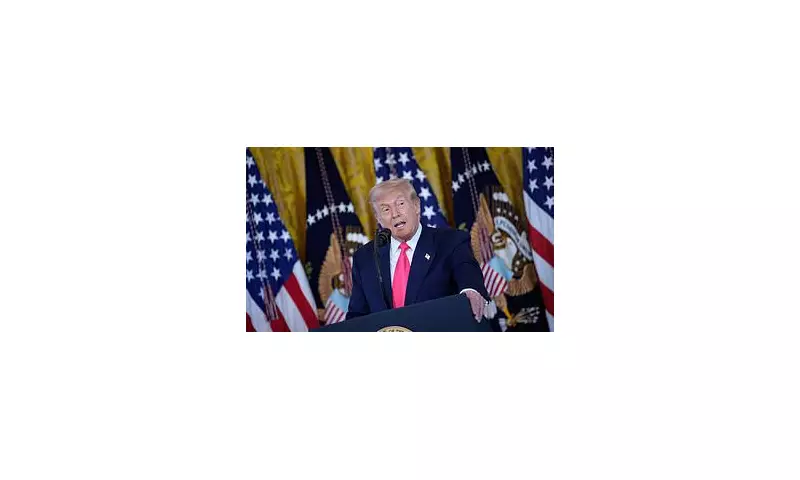
The BBC is preparing for a significant legal confrontation with former US President Donald Trump after defiantly rejecting his ultimatum for a billion-dollar settlement over an edited clip of his January 6 speech.
The Edited Speech Controversy
Corporation chairman Samir Shah acknowledged "challenging circumstances" in a staff letter obtained by the Daily Mail, describing the past week as particularly difficult. The controversy centres on a Panorama programme that featured an edited version of Mr Trump's speech preceding the Capitol riot in 2021.
The BBC has admitted that editors created a misleading impression by splicing together two statements made approximately an hour apart, showing the former president urging supporters to "walk down to the Capitol" and "fight like hell" as if they were consecutive remarks. This editing "unintentionally created the impression that we were showing a single continuous section of the speech", the Corporation stated.
Trump's Ultimatum and BBC's Response
Mr Trump had set a firm deadline for the BBC to issue a full retraction, what he termed a "grovelling apology", and compensation offer - threatening otherwise to file a $1 billion (£760 million) lawsuit for defamation.
Despite the pressure, BBC chiefs opted to defy the challenge. While issuing an apology on Thursday night for the editing manner, they strongly refused to concede that Mr Trump had any legal basis for damages. In his personal letter to the former president, Mr Shah extended his apology but maintained the Corporation's position that "there is no basis for a defamation claim".
The BBC's legal team outlined five key reasons why they believe the case lacks merit, noting the documentary was restricted to UK viewers, caused no demonstrable harm to Mr Trump, and "was not designed to mislead, but just to shorten a long speech".
Political Fallout and Internal Consequences
The controversy has triggered significant political repercussions, with Culture Secretary Lisa Nandy criticising the BBC's editorial standards during an appearance on BBC Radio 4's Today programme. She suggested that guidelines were "in some cases not robust enough and in other cases not consistently applied".
Ms Nandy also hinted at potential intervention in BBC board appointments, specifically addressing concerns about Sir Robbie Gibb, a board member and former communications director for Theresa May. Unions and MPs have demanded Sir Robbie's removal after he was linked to the report highlighting concerns about the Trump speech editing.
The situation has already claimed internal casualties, with BBC director-general Tim Davie and head of BBC News Deborah Turness both resigning on Sunday amid the escalating crisis.
Mr Trump remains adamant about pursuing legal action, telling Fox News: "I guess I have to [sue]. Why not? They defrauded the public and they've admitted it." He described his original speech as "beautiful" and "very calming", accusing the BBC of making it "sound radical" through selective editing.





